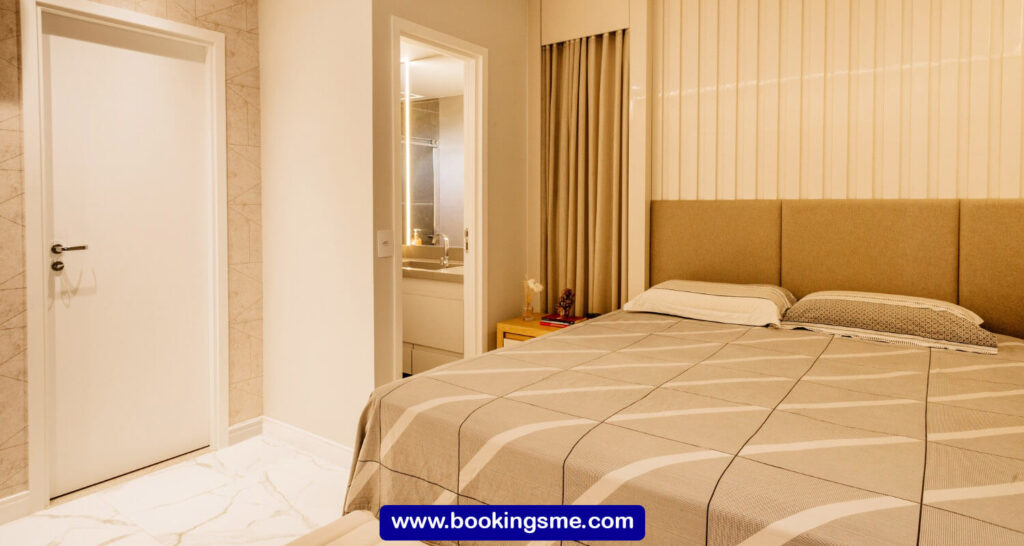Living arrangements profoundly impact our finances and lifestyle choices. Amidst housing debates, the question arises: Is living in a hotel cheaper than renting an apartment? This article explores the comparison, taking into account factors such as expenses, amenities, and geographic location.
Read also: Hotel Check in After Midnight Discount
By analyzing the nuances of hotel living and apartment renting, individuals can make informed decisions aligned with their budgets and preferences. Whether seeking short-term convenience or long-term stability, understanding the dynamics between hotel stays and apartment leases is crucial. Let’s explore this topic together to uncover insights into the affordability and feasibility of each option.
Factors to Consider
- Cost of Living in a Hotel
When considering living in a hotel, it’s essential to factor in the daily rates compared to monthly rates. While daily rates might seem affordable initially, they can quickly add up over time. Additionally, hotels often impose additional fees and taxes, which can significantly impact the overall cost. However, many hotels offer discounts for extended stays, potentially making them more cost-effective in the long run.
- Cost of Renting an Apartment
Renting an apartment involves monthly rent payments, typically paid in advance. Additionally, tenants are often required to pay a security deposit and other upfront costs. While the monthly rent may seem higher than daily hotel rates, apartments generally offer more space and privacy. However, tenants must also consider maintenance costs and utilities, which are often not included in the rent.
Short-Term vs. Long-Term Considerations
Short-term hotel stays may seem cheaper initially, but they can quickly become expensive over time. On the other hand, renting an apartment involves a more significant upfront cost but may be more cost-effective in the long term. Individuals must weigh the short-term convenience of a hotel against the long-term stability of renting.
Location Matters
The location plays a crucial role in determining the cost of both options. In areas with high demand for housing, such as major cities, hotel rates may be comparable to or even higher than apartment rents. However, in less densely populated areas, hotels may offer more competitive rates, making them a more affordable option.
Amenities and Utilities
Hotels often include amenities such as housekeeping, gym access, and complimentary breakfast, which can add significant value. However, tenants must consider the cost of utilities when renting an apartment, which may or may not be included in the rent.

Is Living In A Hotel Cheaper Than Renting
Flexibility and Commitment
One advantage of living in a hotel is the flexibility it offers. Individuals can check in and out as needed without being tied down by a lease. However, renting an apartment provides stability and security, as tenants are protected by lease agreements.
Hidden Costs and Additional Expenses
When considering accommodation options, it’s vital to account for hidden costs and additional expenses that may not be immediately apparent. Beyond the base rental or hotel fee, there can be supplementary charges such as taxes, service fees, or utility costs. These expenses can accumulate over time, significantly impacting the overall affordability of living in a hotel or renting an apartment.
Additionally, unforeseen costs like maintenance or repairs may arise, necessitating financial preparedness. By anticipating and budgeting for these hidden costs, individuals can make more informed decisions about their housing arrangements, ensuring financial stability and peace of mind in the long run.
Lifestyle and Comfort
The choice between living in a hotel and renting an apartment ultimately comes down to personal preferences and comfort levels. While hotels offer convenience and luxury, apartments provide a sense of permanence and belonging.
Read more: What Is A Suite In A Hotel
Safety and Security
Safety is a critical consideration when choosing between living in a hotel and renting an apartment. Hotels frequently implement security measures like key card access and surveillance cameras. However, tenants must also consider the safety of the neighborhood when renting an apartment.
Community and Social Aspect
Living in a hotel offers opportunities for social interaction, as guests often gather in common areas such as the lobby or restaurant. However, apartment complexes also provide a sense of community, with neighbors often forming close-knit relationships.
Financial Stability and Budgeting
Individuals must assess their financial stability and budgeting capabilities when choosing between living in a hotel and renting an apartment. While hotels may seem more affordable in the short term, renting offers long-term financial stability and predictability.
Tax Implications
Considering tax implications is crucial when comparing living in a hotel versus renting an apartment. While hotel stays generally aren’t tax-deductible, renters may qualify for deductions or exemptions. These could include deductions for property taxes paid by landlords or credits like the renter’s credit.
Understanding the tax implications of each option can significantly impact the overall cost and financial feasibility, guiding individuals in making the most cost-effective housing decision.
Personal Circumstances
Personal circumstances play a significant role in housing decisions. Temporary residents or those with uncertain living situations may find living in a hotel more convenient, while individuals seeking stability may opt for renting an apartment.
Case Studies and Examples
To illustrate the cost comparison between living in a hotel and renting an apartment, consider two hypothetical scenarios. In Scenario A, a business traveler stays in a hotel for three months, while in Scenario B, a family rents a two-bedroom apartment for the same period. By analyzing the total costs in each scenario, individuals can make an informed decision based on their specific circumstances.
Conclusion
In conclusion, whether is living in a hotel cheaper than renting an apartment depends on various factors, including location, amenities, and personal preferences. While hotels offer convenience and flexibility, renting provides stability and long-term financial benefits. Ultimately, individuals must carefully evaluate their options and choose the housing arrangement that best suits their needs and circumstances.
Is it cheaper to live in a hotel or rent an apartment long-term?
The cost-effectiveness of living in a hotel versus renting an apartment long-term depends on various factors, including location, amenities, and individual preferences.
What are some hidden costs associated with living in a hotel?
Hidden costs of living in a hotel may include additional fees, taxes, and expenses for amenities or services not included in the initial rate.
Are utilities included in hotel stays?
In most cases, utilities such as electricity, water, and internet are included in the cost of a hotel stay. However, it’s essential to clarify with the hotel before booking.
Can I negotiate lower rent prices for an apartment?
It’s possible to negotiate lower rent prices for an apartment, especially in areas with high vacancy rates or during off-peak seasons.
Are there any tax benefits to renting an apartment?
Renters may be eligible for tax deductions or credits, such as the renter’s credit or deductions for property taxes paid by landlords. However, individual circumstances vary, so it’s advisable to consult a tax professional for personalized advice.



1 thought on “Is Living In A Hotel Cheaper Than Renting?”